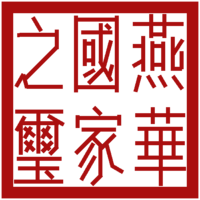Yinese Civil War
This article is incomplete because it is pending further input from participants, or it is a work-in-progress by one author. Please comment on this article's talk page to share your input, comments and questions. Note: To contribute to this article, you may need to seek help from the author(s) of this page. |
| Yinese Civil War | ||||||||||
|---|---|---|---|---|---|---|---|---|---|---|
| Part of the Fourth Winter Period | ||||||||||
| ||||||||||
| ||||||||||
| Belligerents | ||||||||||
|
Supported by: |
|
| ||||||||
| Commanders and leaders | ||||||||||
|
Supported by: |
|
| ||||||||
| Strength | ||||||||||
|
1968: 4 million regular troops 3 million militia[2] |
1968: 2.9 million regular troops 2.4 million militia[2] |
1966: 500 thousand regular troops[2] | ||||||||
| Casualties and losses | ||||||||||
|
1,200,000 killed 2,000,000 wounded 200,000 missing[3][2] |
970,000 killed 1,800,000 wounded 350,000 missing[3][2] |
100,000+ killed Unknown[3] | ||||||||
|
12,000,000 civilians killed 23,000,000 civilians wounded 3,000,000 civilians missing[3] | ||||||||||
The Yinese Civil War (Yinese: 燕國內戰; Yinese Hungshui Cambranisation: Yin-gwok Noih-jin) (7 March 1966 – 23 November 1981) was a civil war in Yingok that was fought between the central government often known as the Republicans, the forces of the Kongchangtong, and the Dynastic Restoration Movement. The war eventually led to a Republican victory, with the Dynastic Restoration Movement falling apart following the death of Prince Cheunyam in 1968, the fleeing of much of the Kongchangtong in the waning years of the war, and the surrender of the last largescale communist stronghold in the midlands in 1981 with the Treaty of Cingdou. The end of the Yinese Civil War also marked the conclusion of the Fourth Winter Period.
The early years of the war was marked by humiliating defeats for Republican forces in the Southern Theatre while in the Northern Theatre, the conflict was inconclusive. This was largely due to a weak government that suffered from a lack of political consensus, indecision, and corruption. This trend ceased following the 1973 Yinese coup d'état when Hong Bokngai dissolved the National Diet and established a Yinese Provisional Government. The coup significantly altered the dynamics of the conflict, as provisional government brought a new level of discipline and cohesion to the Republican forces. The government implemented sweeping reforms, including the restructuring of the military command, and establishment of tighter control over the war economy. By 1977, the Republicans had regained significant territories previously lost to the Kongchangtong. The People's Union was overrun by Republican forces in the same year, severely weakening the communist forces and boosting Republican morale.
By 1978, Kongchangtong leadership realised that their position was becoming increasingly untenable, and plans for evacuation to Louwan began to take shape. Much of the Kongchangtong was evacuated by the spring of 1980 and dealt a significant blow to the morale of the remaining Kongchangtang forces in Yingok. The surrender of much of the Yinese Red Army in the Munlok region around November of 1981 marked the official end of the Yinese Civil War. as announced by the central government.






